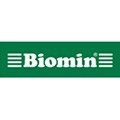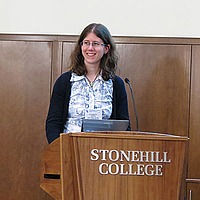 An international and interdisciplinary forum of pioneering research, the conference saw academic, governmental, and industrial scientists gather together to discuss topics related to toxins produced by fungi, algae and cyanobacteria. The presentations also covered novel and emerging toxins, advances in analytical detection, risk assessment, and regulations for the prevention and control of mycotoxins and phycotoxins.
An international and interdisciplinary forum of pioneering research, the conference saw academic, governmental, and industrial scientists gather together to discuss topics related to toxins produced by fungi, algae and cyanobacteria. The presentations also covered novel and emerging toxins, advances in analytical detection, risk assessment, and regulations for the prevention and control of mycotoxins and phycotoxins.
BIOMIN contributed to the scientific program with the presentation of two posters. Dieter Moll focussed on the topic of biotransformation of the ergot alkaloid ergopeptine by enzymes isolated from Rhodococcus erythropolis MTHt3, and Christina Schwab on the analyses of 83 feed samples for 340 mycotoxins and secondary metabolites.

Posters were also presented by our colleagues from the Christian-Doppler Laboratory for Mycotoxin Metabolism, a BIOMIN co-sponsored research collaboration at IFA-Tulln, and by BOKU-affiliated scientists at Campus Tulln. Heidi Schwartz displayed a poster on the post-harvest reduction of deoxynivalenol, Prof. Gerhard Adam on chemical synthesis and toxicity of novel DON metabolites, and Gerlinde Wiesenberger on plant-detoxification of trichothecene toxins. On the third day of the conference, Prof. Rudolf Krska gave an interesting insight during his lecture on the metabolomics of plant-fusarium interactions.

BIOMIN sponsored the participation of Elisabeth Varga, who was involved in the discovery of a novel mycotoxin during her PhD thesis at the IFA-Tulln in Austria. She was nominated to present her thesis at the main conference as the "best junior scientist GRS speaker – mycotoxins" and is honored to co-chair the Gordon Research Seminar in 2015.
Participation at this high level scientific conference by researchers of IFA-Tulln and BIOMIN once again highlights the significant contributions to mycotoxin research by the "Mycotoxin Hot Spot Tulln".
August 19, 2013 - Biomin


